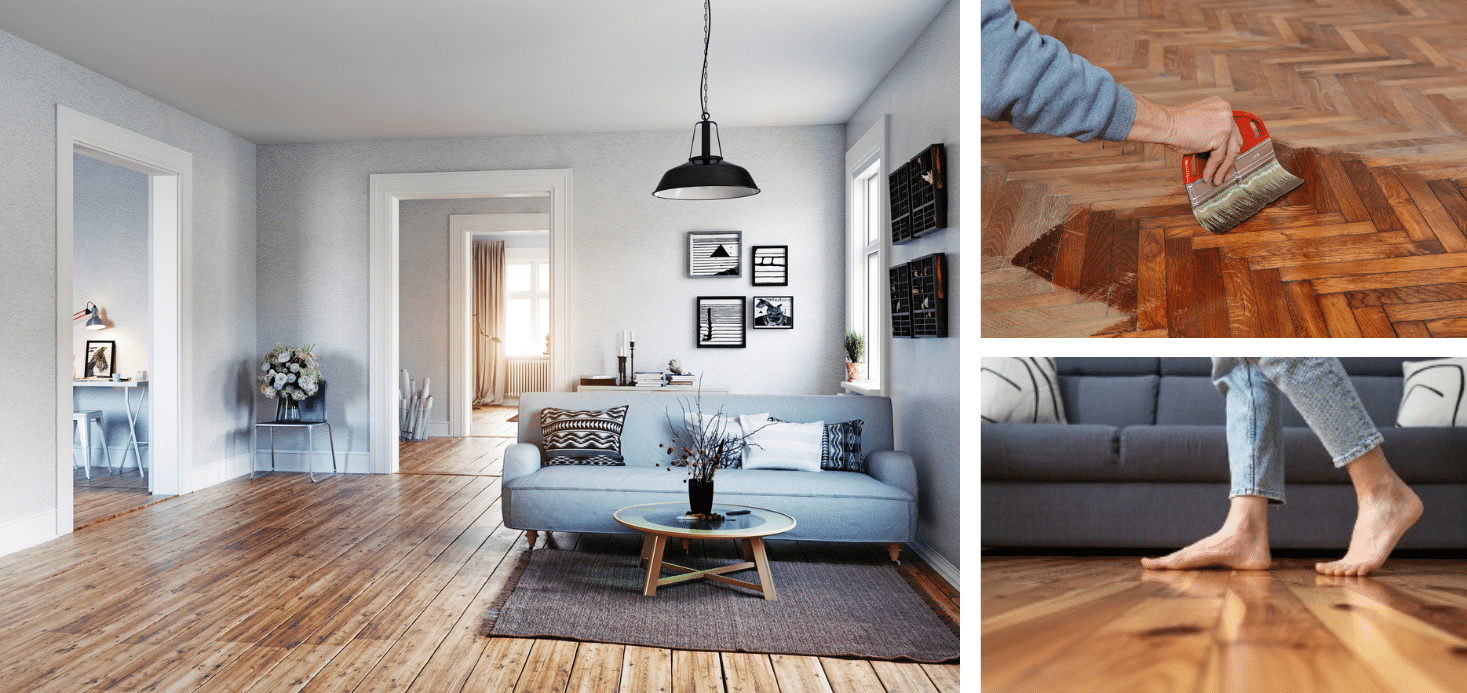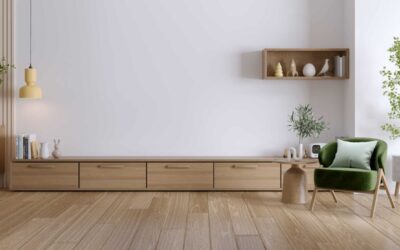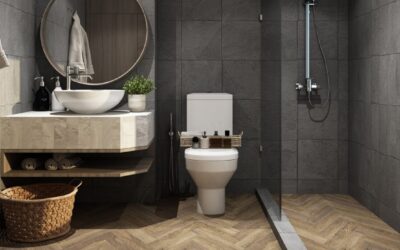Hickory and oak hardwood floors are ideal choices for the home or office. Both floors offer durability, natural beauty, and a long-lasting exterior that’s highly resistant to dents and scratches. Choosing between the two floors requires careful consideration due to the differences in appearance, strength, and colors available.
In this article, you’ll learn the differences and similarities between hickory vs oak flooring. By the end, you’ll know how these two hardwood floors compare and which is the best floor for your home or business.
Hickory vs Oak Flooring
Oak is extremely versatile. While not as strong as hickory flooring, it still offers long-lasting strength and durability. Available in variations of red or white oak, a range of colors are available to suit any aesthetic.
Hickory is less common than oak and provides a unique choice for the home. It has richer wood colors with warmer hues and more prominent grains. Being the strongest hardwood floor available, hickory’s resilience is unmatched.
Both hardwood floors offer a natural look to the space. Hickory and oak both offer unique character and an intricate grain in every plank. Maintenance routines are also similar and very simple.
Our prefinished hickory and oak floors are protected with a water-resistant finish. However, hardwood isn’t always recommended in high-humidity rooms (like kitchens, bathrooms, and utility areas). Engineered wood, especially waterproof wood, is a better choice as it can handle changes in moisture levels better than hardwood.
Pros of Hickory Flooring
- Extremely durable: Hickory is the hardest domestic hardwood floor available, scoring 1820 on the Janka hardness scale, so it’s strong, tough, and lasts.
- Distinctively natural: This hardwood has particularly complex grains and knotholes, giving floors a strikingly natural complexion.
- Easily stained: Hickory responds well to hardwood stain, both light and dark, providing many color options to homeowners and businesses.
Cons of Hickory Flooring
- Dark stains: While hickory responds well to dark stains, a lighter stain best showcases the natural grains and warm, rich tones.
- Installation: Being extremely hard, hickory is challenging to cut, sand, and install. Professional installation is recommended to avoid accidental damage.
Pros of Oak Flooring
- Strong: While not as strong as hickory, oak hardwood floors are still a strong, solid, durable choice of floor with a 1220 rating on the Janka hardness scale.
- Extremely versatile: Available in white (with light brown to slight gray hues) and red (with red to pink tones), oak can be paired with any décor scheme.
- Trendy: Oak is the most popular choice of flooring and has been for decades, making it a fashionable and timeless pick for the home.
Cons of Oak Flooring
- Lightening: A low photosensitivity makes oak hardwood naturally resistant to UV rays. However, the color can still lighten slightly over time.
- Popularity: Oak is the most common hardwood found in the home. While it’s popular and easy to pair with any décor scheme, it doesn’t offer as unique an aesthetic as hickory.
FAQS
Is Hickory Flooring Better Than Oak?
Hickory and oak hardwood floors are both good choices for the home. Hickory is certainly stronger than oak. Its density makes it able to handle more foot traffic compared to oak. However, oak is not too far behind. It’s still a strong, solid hardwood floor that’s extremely durable.
In terms of appearance, oak is the more popular choice. Available in white or red oak variations, you can find many different styles to match your desired aesthetic. The natural grain in hickory is much more prominent than in oak. Therefore, its rarer, richer appearance offers a more unique look.
Is Hickory Denser Than Oak?
Hickory is the hardest flooring and the densest, particularly compared to oak hardwood floors. This makes it slightly harder to cut, sand, and finish. Professional installation is recommended for both hickory and oak hardwood to ensure a long-lasting finish.
Does Hickory Flooring Yellow Over Time?
As with any natural material, hickory flooring may undergo subtle changes in color over time. The heartwood, with its rich dark hues, can mellow into lighter shades, displaying a spectrum from pale blond to warm amber and golden brown.
The yellowing effect typically results from the oil polyurethane coating commonly applied to hickory floors. Unlike waterborne finishes, this coating does not retain its original transparency.
Is Hickory a Good Flooring Material?
All hardwood floors are durable and long-lasting, with lifespans over 100 years with the right care and refinishing. Hickory is particularly durable, being among the strongest hardwood floors available. Owing to its strength, hickory is hard to dent, making it an ideal floor for high-traffic areas, like hallways, stairs, and living areas.
Cleaning hickory hardwood is also extremely simple, with regular vacuuming and the use of recommended hardwood floor cleaners routinely.
Conclusion
Choosing between hickory vs oak hardwood flooring depends on personal preference and style. Hickory comes at a slightly higher price compared with oak, however, both types of hardwood are considered “top of the range” floors.
Both hickory and oak are strong and durable, with hickory being a little bit more resistant to dents, dings, and scratches. A natural characteristic can be found in both hardwoods, with hickory offering a slightly more prominent grain and wood look.
Considering hickory or oak in your home? See what our flooring looks like in your room of choice with our quick and easy room visualizer!



